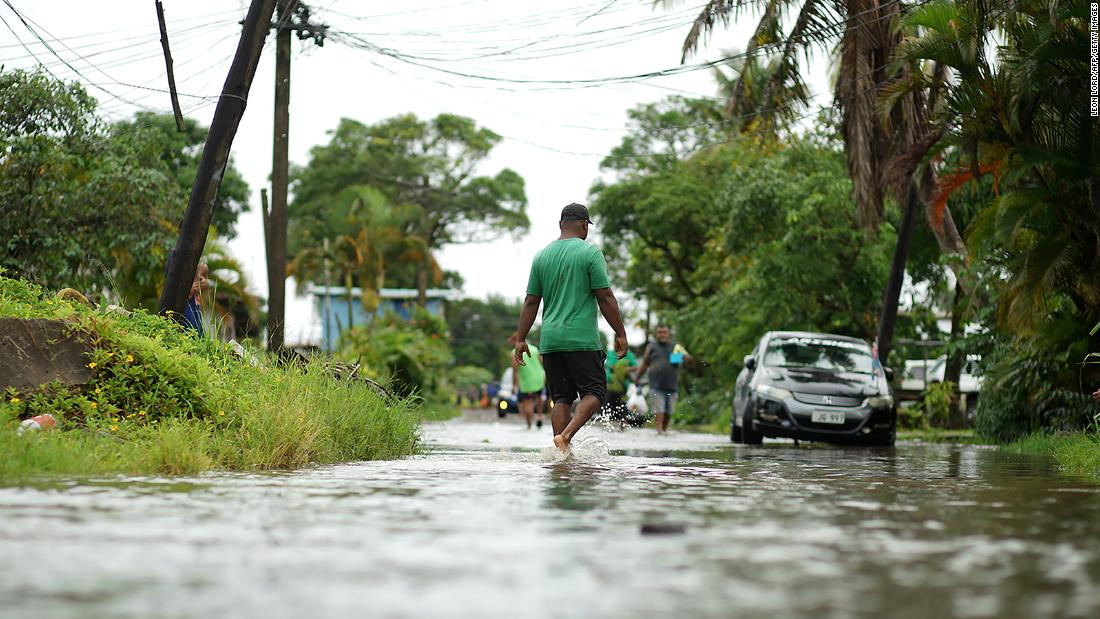Fiji under curfew as powerful Cyclone Yasa set to make landfall

Tropical Cyclone Yasa reached Category 5 level on the Saffir-Simpson Hurricane Scale late Wednesday, with peak winds of 260 kilometers per hour (161 miles per hour). The storm has weakened slightly to 250 kph (155 mph) and is set to make landfall equivalent to a strong Category 4 hurricane. Local officials have warned the potential effect of the storm could be devastating.The country ordered a 14-hour nationwide curfew from 4 p.m. (10 p.m. ET Wednesday) with people living in low-lying areas urged to move to higher ground before nightfall, Prime Minister Frank Bainimarama said in a video posted to Facebook.”The impact for this super storm is more or less the entire country,” Bainimarama said in the video.The United States National Oceanic and Atmospheric Administration warns that even well built homes could face “severe damage” as a result of winds more than 200 kph (124 mph), while trees and power poles could be downed, bringing more destruction and disruption.Yasa would “easily surpass” the strength of 2016’s Cyclone Winston, Bainimarama said, referring to the Southern Hemisphere’s most intense tropical storm on record, which killed more than 40 Fijians and left tens of thousands of people homeless.More than 850,000 Fijians, or 95% of the population, live in the direct path of Yasa, Bainimarama said, adding that weather forecasts anticipated flash flooding and “severe coastal inundation” that included waves up to 10 meters (33 feet) high.Police would enforce a ban on public transport, said the country’s National Disaster Management Office, which added that the country had declared a “state of natural disaster” that gives law enforcement authorities increased powers.By 8 p.m. (2 a.m. ET) Thursday, the center of Yasa was forecast to be 100 km (62 miles) east of the village of Yasawa-i-Rara and potentially over Fiji’s fifth-most populous province of Bua, home to 15,000 people, the office said.Strong cyclones have become increasingly common in the Pacific in recent years, something Bainimarama has put down to climate change. Earlier this year, he said that global warming was the cause of worsening wildfires in Australia as well as heavier storms in the Pacific.”My fellow Fijians, as the world is getting warmer these storms are getting stronger. Every one of us must treat these climate-fuelled catastrophes with deadly seriousness,” Bainimarama wrote in a Facebook post Thursday.Additional reporting by CNN’s Angus Watson and meteorologist Taylor Ward.





